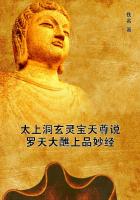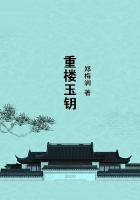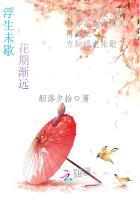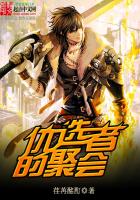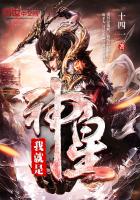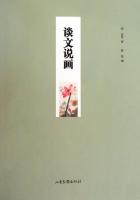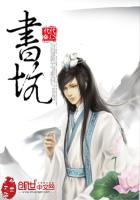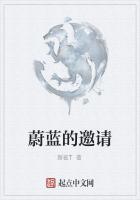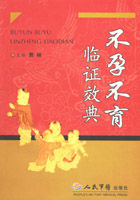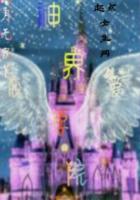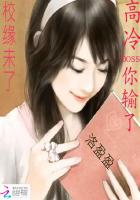This ceremony is repeated four or five times, and averts the imminent danger of death. In Tonga it was believed that if any one fed himself with his own hands after touching the sacred person of a superior chief or anything that belonged to him, he would swell up and die; the sanctity of the chief, like a virulent poison, infected the hands of his inferior, and, being communicated through them to the food, proved fatal to the eater. A commoner who had incurred this danger could disinfect himself by performing a certain ceremony, which consisted in touching the sole of a chief's foot with the palm and back of each of his hands, and afterwards rinsing his hands in water. If there was no water near, he rubbed his hands with the juicy stem of a plantain or banana. After that he was free to feed himself with his own hands without danger of being attacked by the malady which would otherwise follow from eating with tabooed or sanctified hands. But until the ceremony of expiation or disinfection had been performed, if he wished to eat he had either to get some one to feed him, or else to go down on his knees and pick up the food from the ground with his mouth like a beast. He might not even use a toothpick himself, but might guide the hand of another person holding the toothpick. The Tongans were subject to induration of the liver and certain forms of scrofula, which they often attributed to a failure to perform the requisite expiation after having inadvertently touched a chief or his belongings. Hence they often went through the ceremony as a precaution, without knowing that they had done anything to call for it. The king of Tonga could not refuse to play his part in the rite by presenting his foot to such as desired to touch it, even when they applied to him at an inconvenient time. A fat unwieldy king, who perceived his subjects approaching with this intention, while he chanced to be taking his walks abroad, has been sometimes seen to waddle as fast as his legs could carry him out of their way, in order to escape the importunate and not wholly disinterested expression of their homage. If any one fancied he might have already unwittingly eaten with tabooed hands, he sat down before the chief, and, taking the chief's foot, pressed it against his own stomach, that the food in his belly might not injure him, and that he might not swell up and die. Since scrofula was regarded by the Tongans as a result of eating with tabooed hands, we may conjecture that persons who suffered from it among them often resorted to the touch or pressure of the king's foot as a cure for their malady. The analogy of the custom with the old English practice of bringing scrofulous patients to the king to be healed by his touch is sufficiently obvious, and suggests, as I have already pointed out elsewhere, that among our own remote ancestors scrofula may have obtained its name of the King's Evil, from a belief, like that of the Tongans, that it was caused as well as cured by contact with the divine majesty of kings.
In New Zealand the dread of the sanctity of chiefs was at least as great as in Tonga. Their ghostly power, derived from an ancestral spirit, diffused itself by contagion over everything they touched, and could strike dead all who rashly or unwittingly meddled with it. For instance, it once happened that a New Zealand chief of high rank and great sanctity had left the remains of his dinner by the wayside. A slave, a stout, hungry fellow, coming up after the chief had gone, saw the unfinished dinner, and ate it up without asking questions. Hardly had he finished when he was informed by a horror-stricken spectator that the food of which he had eaten was the chief's. I knew the unfortunate delinquent well. He was remarkable for courage, and had signalised himself in the wars of the tribe, but no sooner did he hear the fatal news than he was seized by the most extraordinary convulsions and cramp in the stomach, which never ceased till he died, about sundown the same day. He was a strong man, in the prime of life, and if any pakeha [European] freethinker should have said he was not killed by the tapu of the chief, which had been communicated to the food by contact, he would have been listened to with feelings of contempt for his ignorance and inability to understand plain and direct evidence. This is not a solitary case. A Maori woman having eaten of some fruit, and being afterwards told that the fruit had been taken from a tabooed place, exclaimed that the spirit of the chief, whose sanctity had been thus profaned, would kill her. This was in the afternoon, and next day by twelve o'clock she was dead. A Maori chief's tinder-box was once the means of killing several persons; for, having been lost by him, and found by some men who used it to light their pipes, they died of fright on learning to whom it had belonged. So, too, the garments of a high New Zealand chief will kill any one else who wears them. A chief was observed by a missionary to throw down a precipice a blanket which he found too heavy to carry. Being asked by the missionary why he did not leave it on a tree for the use of a future traveller, the chief replied that it was the fear of its being taken by another which caused him to throw it where he did, for if it were worn, his tapu (that is, his spiritual power communicated by contact to the blanket and through the blanket to the man) would kill the person. For a similar reason a Maori chief would not blow a fire with his mouth; for his sacred breath would communicate its sanctity to the fire, which would pass it on to the pot on the fire, which would pass it on to the meat in the pot, which would pass it on to the man who ate the meat, which was in the pot, which stood on the fire, which was breathed on by the chief; so that the eater, infected by the chief's breath conveyed through these intermediaries, would surely die.

